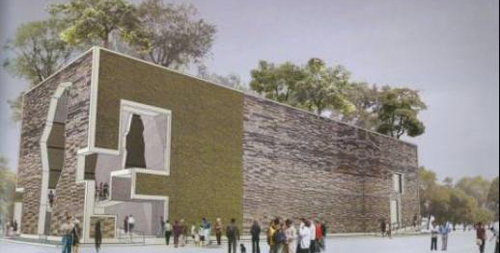Tengtou Village: China's eco-friendly example
Tengtou has been selected as the only village to have an exhibit in the Urban Best Practice Area of Shanghai Expo. This tiny two-square-kilometer settlement under the juristiction of Fenghua, Ningbo City in eastern China's Zhejiang Province is acknowledged for its distinctive, eco-friendly development model.
 |
| Ningbo Case Pavilion |
A Common Understanding
Tengtou didn't drag its feet on ecological protection practices for a start; they were initiated as early as the 1980s when the reform and opening-up drive was launched. The concept of "ecological protection" was still a new thing then, while "getting rich" was the more common preoccupation with Chinese people. Tengtou villagers shared the same ambition, largely because their home province is Zhejiang, where a business and money-making tradition has strong roots.
In the mid-1980s, a foreign investor wanted to build a pulp and paper mill in the village, which promised an astounding annual net profit of over RMB 1 million. What should have been good news was rejected by Fu Qiping, then Party Secretary of Tengtou, on the grounds it was likely to create significant pollution into the bargain. Fu sought out an environmental specialist to screen a documentary about the environment for the villagers. For the first time locals realized how pollution and mismanagement of Earth's resources set the stage for future environmental disasters. From that moment all the villagers reached a common understanding on environmental protection, and the decision to give up the pulp and paper project was unanimous.
In 1993 an environmental protection committee was set up in Tengtou -- the first village-level environmental organization in China -- to monitor investments. It bravely adopted a one-vote veto process. Over the years the committee has rejected more than 50 projects that offered high economic returns but threatened ecological destruction or compromise.
The village authority has earmarked an annual fund for ecological conservation, which grows by no less than 20 percent every year. Little things are seen to matter: in the village today, wind and solar powered street lamps have been installed along one third of its roads; all the residential communities are equipped with solar water heating systems with which more than 50,000 KWH of electricity is saved per year. There are also two eco-friendly toilets constructed where captured rainwater is stored, saving about 9,500 tons of water every year.
The local air quality monitoring station features an electronic board on which the local temperature, humidity and air quality are showed. A local official told China Today that he hopes the figures on the board remind every inhabitant of the importance of environmental conservation.
In Tengtou's residential areas rainwater and sewage have been managed separately. The village's waste is disposed of or treated through the urban garbage and sewage system in nearby Fenghua City, using processes designed to render it harmless. Many villagers told China Today that for many years they have gradually cultivated the habits of reusing water, using fabric shopping bags instead of plastic bags and hand-washing their clothes for the sake of environmental protection.
Benefiting from Eco-friendly Development
That Tengtou is not blessed with favorable natural conditions may be raising its inhabitants' consciousness. Its low altitude and accompanying rainfall means its farmland is often submerged. Barely making any profit from farming, most villagers simply neglected the land. To better utilize it, the village authority bought the land from villagers for RMB 550 per mu (one mu equals one-fifteenth of one hectare). And in 1986 the village founded an agricultural company in a bid to develop industrial agriculture.
First, they tried on a "three-dimensional eco-farming" based on the theory of ecological chain. Villagers built a three-layer framework, with the upper layer for grape cultivation, the middle for bird breeding, and the lowest for raising fish. The logic was the upper vines sheltered the area from heat and sunlight; the fallen grapes served as food for birds and worms, and the birds' waste fed the fish.
Officials from the UN showed interest in such a model during their visit to Tengtou and they praised the locals' efforts to advance ecological agriculture. After a comprehensive assessment, the UN officials granted the Global 500 Award for Environmental Achievement to Tengtou, a great honor viewed with much pride by the locals.
Second, the Tengtou authority launched projects in cooperation with universities and research institutions to adopt advanced technologies and introduce more efficiency to agricultural production. Various plantations yielding fruit, vegetables, flowers, cultivated seedlings and plant tissue have been established.
Since the late 1990s, the increasing demand for decorative flowers and plants in urban areas has given a big boost to Tengtou's business. So much so in fact, that the local land resources couldn't meet the demands of business expansion. Individual villagers went out to set up plantations in 20-odd other provinces and cities. In 2008 Tengtou conducted business worth RMB 30 million to provide flowers and plants for the Beijing Olympic Games. This year it is responsible for providing 100,000 tree seedlings for the Shanghai Expo.
 0
0 







Go to Forum >>0 Comments